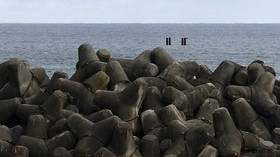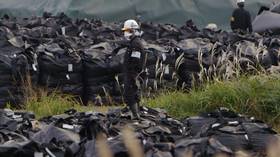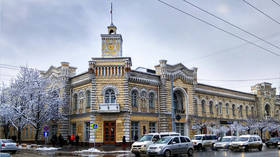China condemns Japan’s nuclear waste plans

The Chinese Foreign Ministry has denounced a Japanese plan to dump radioactive wastewater from the Fukushima nuclear plant into the ocean. While the plant’s management insists the release is safe, Beijing wants Tokyo to seek the permission of surrounding countries before going ahead.
The Japanese plan is “extremely irresponsible,” Chinese Foreign Ministry spokeswoman Mao Ning said at a briefing on Friday.
“The disposal of the Fukushima nuclear-contaminated water impacts the global marine environment and public health. This is not Japan’s domestic affair,” she told reporters. “Japan must not start discharging the nuclear-contaminated water into the ocean before reaching consensus through full consultation with neighboring countries and other stakeholders as well as relevant international agencies.”
Beijing has made a number of similarly-worded statements since the Japanese government first announced its wastewater disposal plan in 2021. South Korea has also objected to the scheme, as have a number of small Pacific Island nations and Japanese fishing communities.
The Fukushima Daiichi nuclear power plant was destroyed by a magnitude 9.0 earthquake and tsunami on March 11, 2011. Three of its reactors melted down, releasing large quantities of contaminated water and prompting mass evacuations from areas along Japan’s east coast.
In the years since, the Tokyo Electric Power Company, which manages the plant, has pumped water into radioactive fuel debris to prevent it from overheating. This process generates around 100 tons of wastewater every day, which the company has been storing and treating in more than 1,000 concrete tanks around the plant.
The company maintains that the treatment process removes all but trace radioactive substances from the water, and with space in the tanks running out, the government confirmed in January that it would begin emptying the tanks into the sea in spring or summer.
The Fukushima disaster prompted the Japanese government to begin phasing out nuclear power in favor of renewables and natural gas, around 10% of which Japan imported from Russia. With Tokyo joining the West’s sanctions regime against Moscow, Prime Minister Fumio Kishida announced last year that Japan would restart closed reactors and build new nuclear plants.













